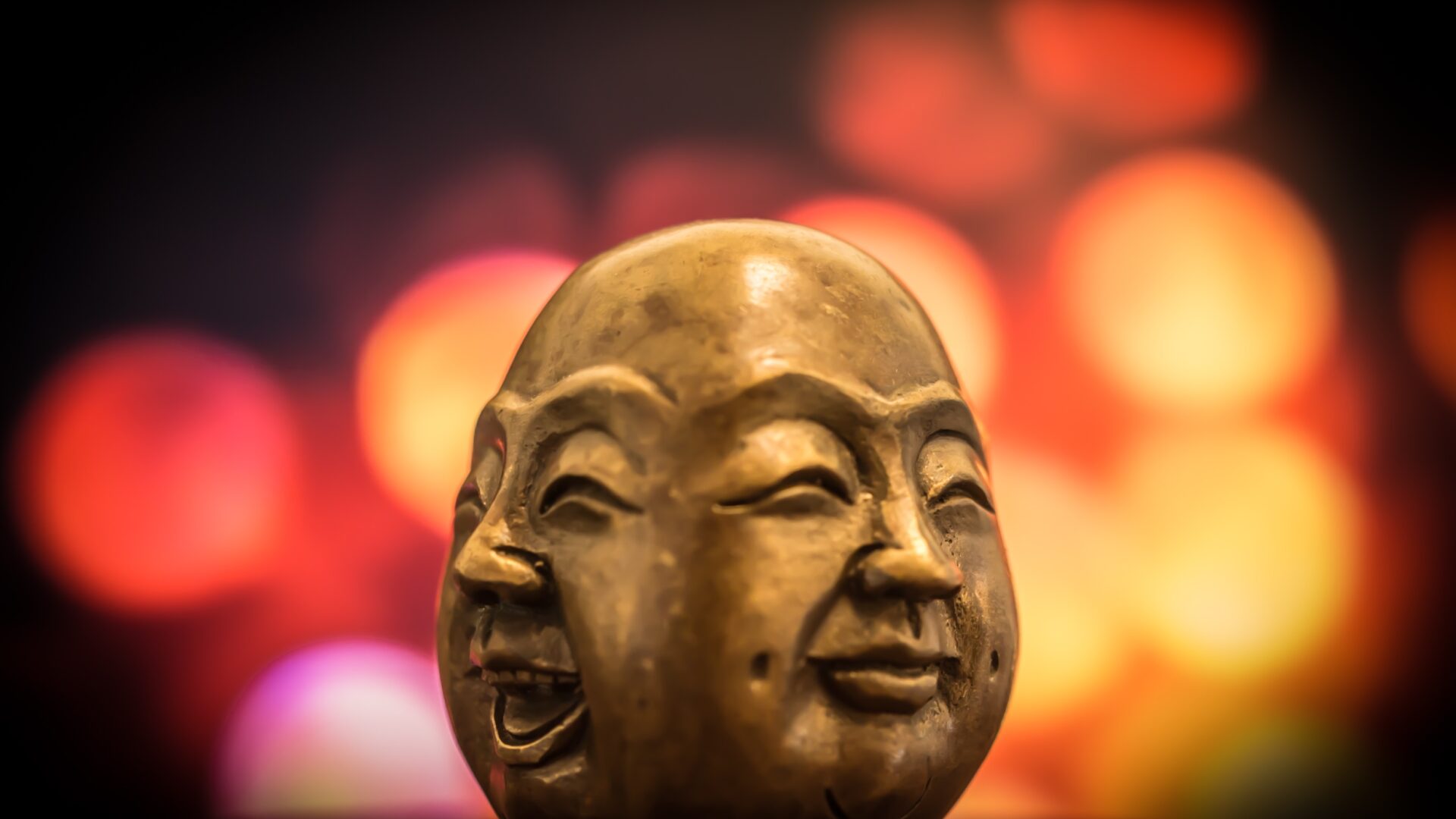I have been bad at Buddhism since I was introduced to the teachings of the Buddha at 17 years old. I’ve been making the same mistakes, relearning and then forgetting the same lessons, while the decades pass. Which, I suppose, proves some of the most basic teachings of the Buddha after all.
The Buddhist Way seems deceptively simple. The rules are plain and free of contradiction. It’s just so difficult to consistently practice.
According to the Way, there are three evils: envy, anger and infatuation. If it’s any consolation, these are considered misdemeanors of thought; Buddhism makes no use of the concept of sin. When we give in to these evils, we are being all-too-human. (Our mistakes cannot be extraordinary. This is a comforting thought, depending on how much Catholicism you’ve been exposed to.) We don’t even need to atone! We suffer from these completely understandable tendencies, but the duration of this suffering is only up to us.
From here, the Buddhist Way directs us to make a choice: keep suffering with our own passions (rage at others or ourselves, jealousy over what others have, and sweet life-affirming lust) or let ourselves out of misery. Here is that core tenet of the Buddha: all our suffering comes from our attachments and desires.
Desire is a synonym for misery in Buddhism. If we can realign ourselves with reality, with how things truly stand, we can stop deluding ourselves with all that wanting. Being in the moment and witnessing how things are is the cure for being driven to distraction, if not madness, by desire.
Coming back to the present moment is the entire process of correction. Then, we simply know we are on the right path because we stop feeling miserable.
Sound easy? Try it.
Still, for writers, these three evils may seem like the sharpest tools in our toolkits. What else is there to write about?
There is nothing I can say about lust that a Jill Soloway character hasn’t said better, and anyway, I posit that the constant companion of any aspiring writer is envy.
I read a book a week for pleasure, to challenge myself, to understand the market, to make my brain grow. In the past year alone, I have had the wind knocked out of me by two works of fiction: The Mothers by Brit Bennett and Difficult Women by Roxane Gay.
The first thing I felt each time was awe. These authors had executed sharp and compulsively-readable fiction. Then immediately I was jealous of their respective genius. I cannot fathom having that gift. I’d never be able to write like either Bennett or Gay. They have made possible what I can only understand in theory.
Buddhist teaching offers two options for those suffering with envy: I could downplay the talents of the envied ones, insult and deride them to cover my jealousy (as women so often endure on Twitter). Or I could admire them, praise them, learn from them. (I choose the latter!)
The choice is illuminated by the image of approaching a cavern, where whatever is shouted into it will echo. What do you want shouted back at you, a beautiful song, or a stream of vitriol? I try to weigh every bit of speech I make like that. (It ain’t easy.)
Envy is real in the world of a writer. So is desire. Nothing on this broken, complicated planet makes me suffer like writing does. Nothing makes me feel such icy self-doubt, nothing inflates my falsest of hopes, like the writing, and then the submission, process.
I want to be published on a certain satirical site with a social justice bent so badly it keeps me up at night. When I have a submission out to the editors, I clench my jaw even while asleep. It’s the wanting. I want to see my name as a byline on that page. I want every person in my social media feeds to know how clever and woke and righteous I am.
I want you to know I am urbane and well-read and firmly on the right side of history. But even if you tell me this (even better, leave it in a comment!!), as soon as I get this (AND I WILL GET IT), it will cease being enough.
For what is the literary submission process but the Buddhist concept of The Wheel? We hope, we submit work, we fantasize about publication or a residency. We spot an e-mail from that press or program and our hopes peak. Then crash. The more desperately we’d hoped, the stronger the rejection stings.
The wheel spins. We are back where we started.
The worst part is, I actually know that publication is a fickle satisfaction. When I first started submitting poems to literary journals 10 years ago, I spent an entire year submitting and being rejected. After a solid year, one acceptance came. I thought it would change everything. The pride was fleeting. I felt disoriented, and then unsatisfied. I had more to write, and there was more I wanted to share.
Publication doesn’t break me out of the wheel. I am still spinning.
The Buddhist Path is so clear! If only I could stop desiring, hoping and dreaming, the pain would stop.
Instead I have arrived at a compromise. (You don’t negotiate in Buddhism. I am a bad Buddhist, or no Buddhist at all. I am a lost and aching thing.) I cannot stop writing and submitting to literary presses I read and admire. But I can stop myself getting carried away with fantasies of glory or fame.
I can become wholly absorbed in each process: scribbling notes, writing drafts, editing, reading journals and submission guidelines, or submitting, And then… letting my attention come to whatever needs to be done next, in that moment. Sorting my laundry. Reading an engrossing novel. A walk in the part. An adventure with a friend.
I can inhabit the submission process when it is time for that. Then I inhabit the next experience, and don’t let my mind wander to publication glory fantasies.
I still experience disappointment. I am not ready to relinquish the desire for my writing to be read, published, validated. I am stuck in The Wheel for now. But at least I can say I have chosen to be here.

Laura Eppinger graduated from Marquette University in Milwaukee, Wisconsin, USA in 2008 with a degree in Journalism, and she’s been writing creatively ever since. She the blog editor here at Newfound Journal.


Thank you Laura. This post has helped me, being both an aspiring Buddhist and writer. Cheers, Luke